Description & Technical information
At the end of the 19th century, Femme fatales – sexual temptresses with irresistible power over men – were a common subject in the art centers of central Europe. Franz von Stuck, Edvard Munch, Gustav Klimt, Gustave Moreau and Fernand Khnopff were a few of the artists that painted memorable and erotic images of women.
Little prepares us for Trübner’s Gorgon’s Head. Her eyes begin to close in a sign of satiation and her thick-pillowed tongue emerges. Above and below her face, writhing snakes hiss. One of three sisters with the power to turn those who see her into stone, she hovers in space, half her face in shadow.
Trübner painted with short, wide brushstrokes, a technique he learned as a student of Wilhelm Leibl in Munich. The 1869 International Art Exhibition brought paintings by Courbet and Manet to the city. Young German artists, in a style called ‘pure painting’, adopted Courbet’s painterly technique.
During the 1870’s, Trübner visited Holland, Belgium and Italy, as well as Paris and London, before returning to Munich, where he painted landscapes and portraits. During the 1890’s, Trubner taught at the Städelsches Kunstinstitut, Frankfurt and the Karlsruhe Kunstverein. His paintings are in many German museums.
A Gorgon’s Head remains Trubner’s most compelling Symbolist painting.
Date: 1891
Period: 1850-1900, 19th century
Origin: Germany
Medium: Oil on board
Signature: Signed
Dimensions: 58 x 43.2 cm (22⁷/₈ x 17 inches)
Provenance: Private collection, Southern Germany
Sale, Villa Grisbach, June 12, 2004
Exhibitions: Heidelberg, Kurpfälzisches Museum and Munich, Kunsthalle Hypo-Kulturstiftung, 1994/95, Wilhem Trübner 1851 – 1917, cat. no.62, illustrated
Categories: Paintings, Drawings & Prints

Discover the gallery
French & Company, Llc
Old Master and 19th Century Paintings, Drawings And Sculpture
More Works From This Gallery
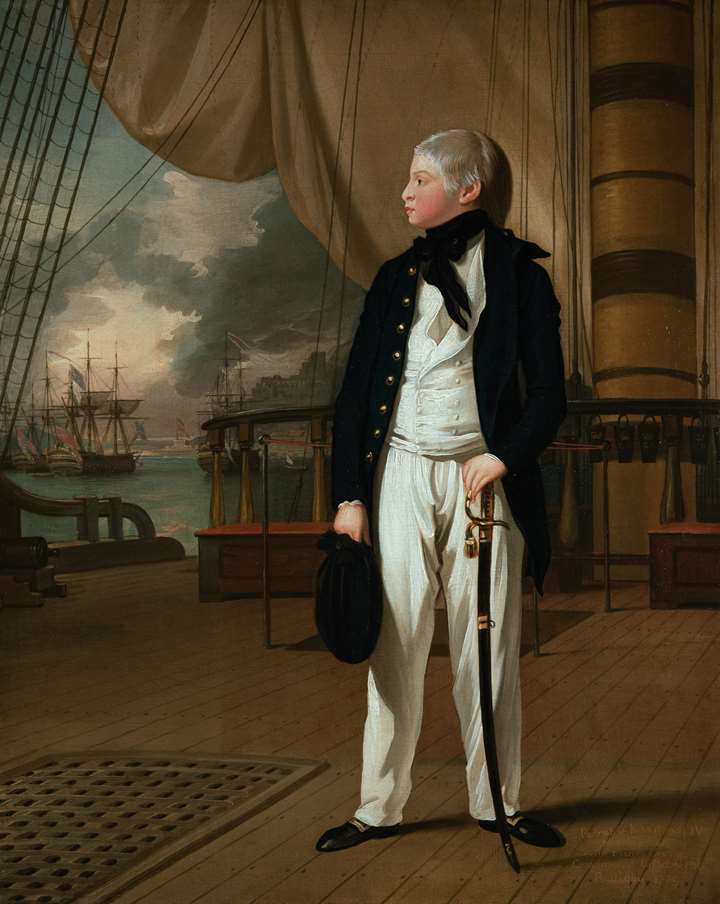
French & Company, Llc
Prince William as a Midshipman
Benjamin West (Springfield, PA, 1738 - London, 1820)
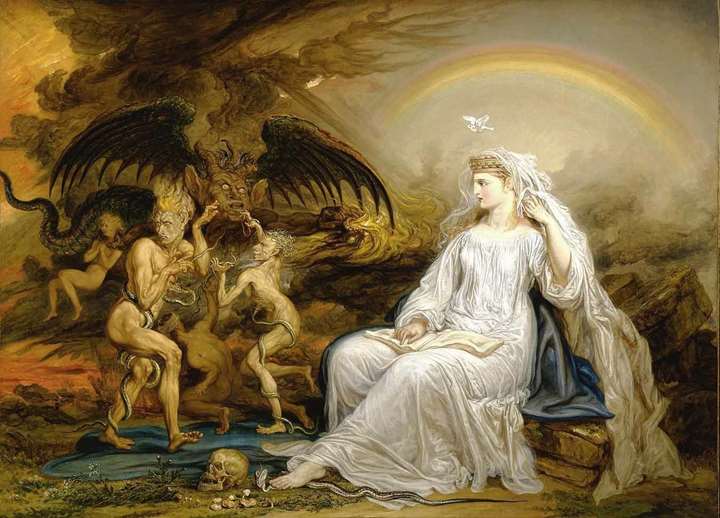
French & Company, Llc
Ignorance, Envy and Jealousy
James Ward (England, 1769 - 1859)

French & Company, Llc
Aurora - ‘L ‘Aurore’
Leon Frederic (Belgium, 1856 - Belgium, 1940)
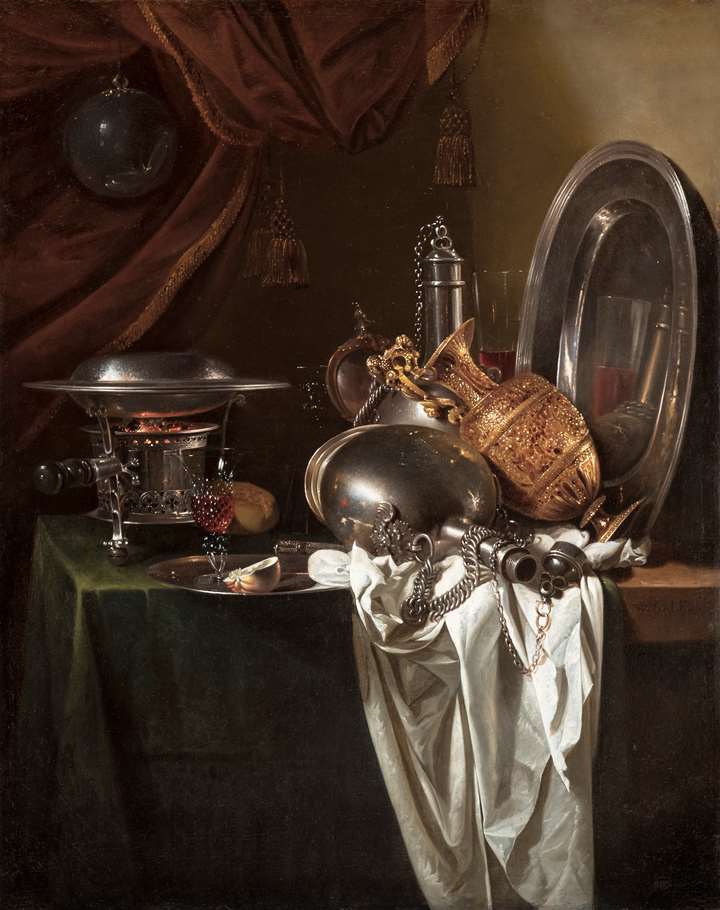
French & Company, Llc
Still Life with a Chafing Dish
Willem Kalf (Rotterdam, 1619 - Amsterdam, 1693)
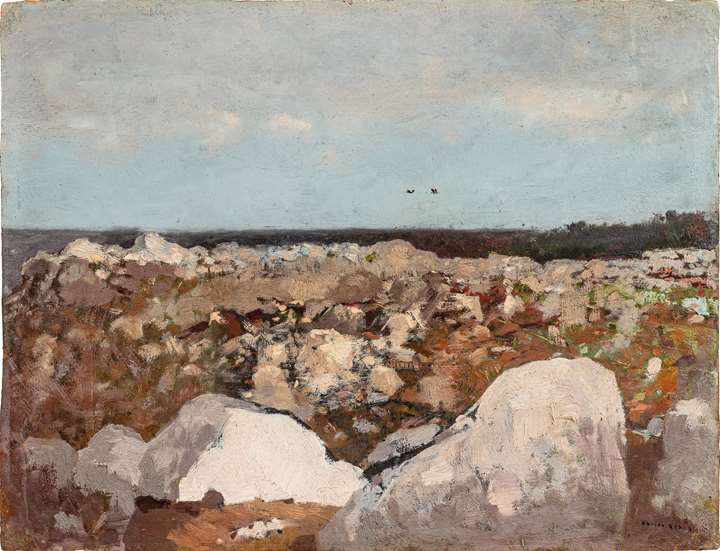
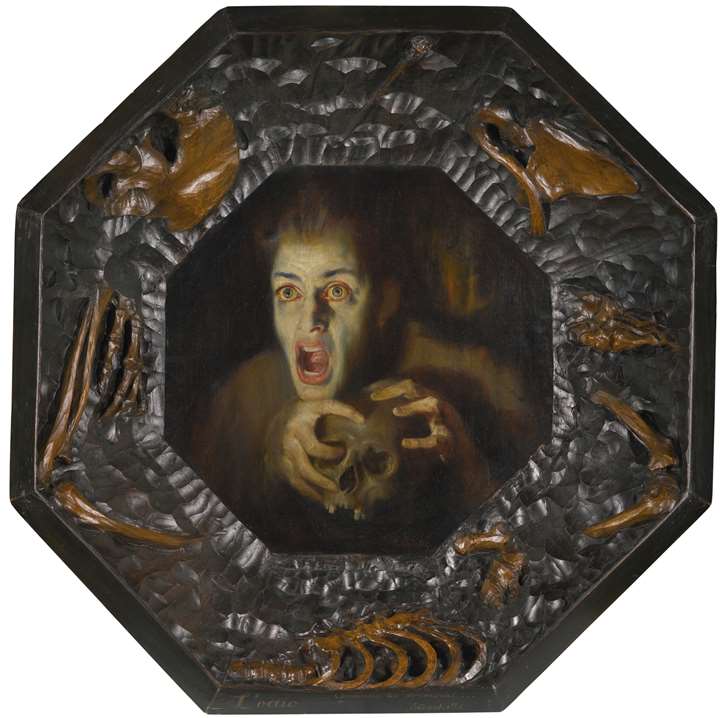

_T637133147234805618.jpg?width=560&height=700&mode=max&scale=both&quality=80)
_T637133147234805619.jpg?width=560&height=700&mode=max&scale=both&quality=80)